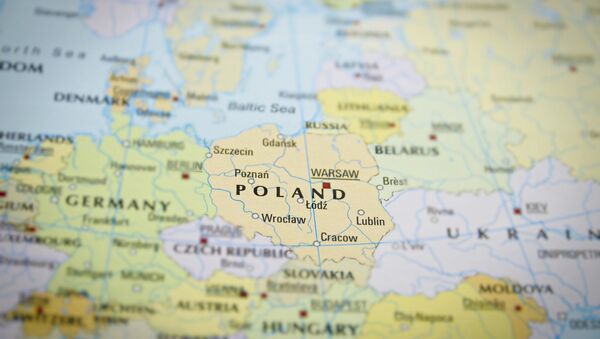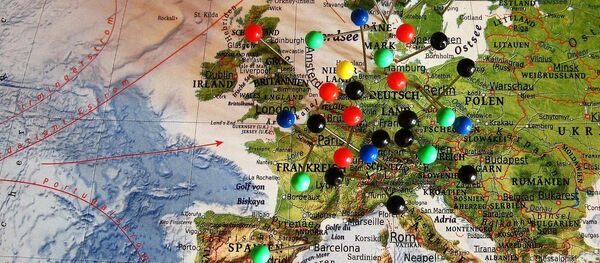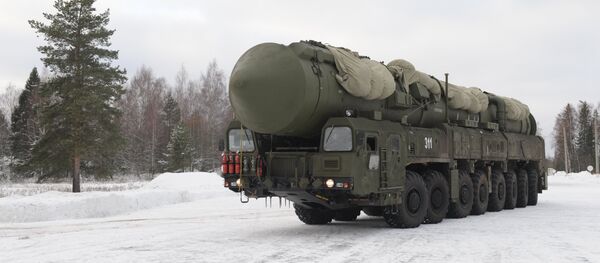On Monday, speaking to The Times, Donald Trump caused a minor panic in Eastern Europe after he doubled down on his old argument that the NATO alliance is "obsolete," because it is unable to deal with the threat of terrorism, and full of members who aren't paying their fair share for defense.
Trump's comments prompted an urgent response from Polish President Andrzej Duda, who challenged the President-elect's sentiment by saying that he didn't see "any factors which could lead to a weakening of NATO." Duda emphasized that Warsaw had recently welcomed more US and NATO troops onto its soil, and would host US-Polish military drills in the near future.
Asked to comment on Trump's remarks, and what his presidency will mean for Central and Eastern Europe, Wawrzyniec Konarski, a political science professor at Krakow's Jagiellonian University, told Sputnik Poland that Warsaw should expect a high level of uncertainty from the Trump administration, with a great deal depending on the kinds of advice the President-elect gets, and who he chooses to listen to.
As far as Poland is concerned, the academic suggested that unfortunately, "for President Trump, Poland will be the same 'blank spot on the map' that it has been for most US presidents, who usually have problems with their knowledge of geography. This isn't something to criticize. It's simply a statement of fact that from the perspective of American presidents, Central and Eastern Europe has traditionally been a region that is important during elections, when they win elections or compete for the [votes] of those Poles living abroad" in the United States.
As for Trump's latest comments on NATO, the analyst admitted that this organization has "for 20 years already, been searching for a sense of identity." At the same time, however, he argued that "a situation in which Trump's actions would suddenly compromise NATO's activity would be irresponsible, and a threat to world peace."
"Therefore, I believe that NATO must undergo a process of internal reform, which is something that is necessary in the times in which we live." However, the analyst added that it is also necessary for regional and global powers, including the US, China, Russia, Iran, Brazil, India and the EU to "behave in a responsible manner in the international arena," something he fears "isn't happening today."
Trump or not, Konarski noted that "Poland has far-reaching goals. In part, this is due to our historical traditions, which is something Polish politicians love to appeal to. On the other hand, we must remember that the foundation of a good foreign policy must be the search for good, although perhaps not ideal (since this can be difficult) relations with our closest neighbors. This applies to countries such as Germany and Russia, as well as the Visegrad Group," (which includes the Czech Republic, Hungary, Poland and Slovakia).
"Sometimes I get the impression…that the policy that Poland is conducting in relation to its closest neighbors is not thought through well enough, because it does not promote the need to recreate good relations, with Russia at least. At the same time, I think that it's absolutely vital for us to find a way to function in a Europe where our voice would be better heard and more meaningful. Personally, as an analyst and as a Pole, I would like it to be so," Konarski concluded.
Last week, the outgoing Obama administration lived up to a long-held pledge to deploy several thousand US troops in Poland, prompting fears that the military buildup in Central and Eastern Europe could spark a new arms race.




